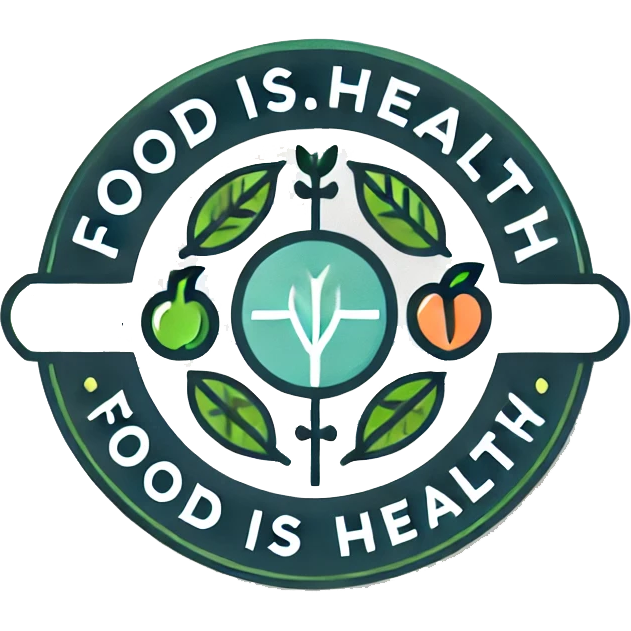When you’re at the grocery store, faced with the choice between organic and conventional fruits and vegetables, it’s natural to wonder: “Are organic options really healthier?” To help you make an informed decision, let’s explore the key nutritional differences between these two types of produce and whether organic fruits and vegetables offer significant health benefits.

Understanding Organic vs. Conventional Farming
Before diving into the nutritional content, it’s important to understand the basics of organic and conventional farming. Organic farming practices avoid the use of synthetic pesticides, fertilizers, and genetically modified organisms (GMOs). Instead, organic farmers rely on natural methods, such as crop rotation, composting, and biological pest control, to maintain soil health and manage pests.
Conventional farming, on the other hand, typically uses synthetic chemicals, including pesticides and fertilizers, to enhance crop yield and protect against pests and diseases. These methods allow for large-scale production, often at a lower cost.
Nutritional Differences Between Organic and Conventional Produce
Several studies have compared the nutritional content of organic and conventional fruits and vegetables, and the results reveal some differences:
- Antioxidants:
- Higher in Organic: One of the most significant findings is that organic fruits and vegetables often have higher levels of antioxidants, such as vitamin C, polyphenols, and flavonoids. Antioxidants are compounds that help protect your cells from damage caused by free radicals, which are linked to chronic diseases like heart disease and cancer.
- Reason: Organic plants may produce more antioxidants as a natural defense mechanism against pests and stress, given the absence of synthetic pesticides.
- Pesticide Residue:
- Lower in Organic: Organic produce generally has lower levels of pesticide residues compared to conventional produce. While the pesticide levels in conventional produce are regulated and considered safe by agencies like the USDA and EPA, some people prefer to minimize their exposure to these chemicals.
- Reason: Organic farming prohibits the use of most synthetic pesticides, relying on natural alternatives and methods.
- Nitrate Levels:
- Lower in Organic: Organic vegetables, particularly leafy greens, tend to have lower nitrate levels. High nitrate levels in vegetables can be a concern because, under certain conditions, nitrates can form compounds that are harmful to human health.
- Reason: Organic farming practices often result in slower plant growth, which can reduce nitrate accumulation in the produce.
- Vitamin and Mineral Content:
- Mixed Results: The vitamin and mineral content of organic and conventional produce can vary, with some studies showing slightly higher levels of certain vitamins (like vitamin C and E) in organic produce, while others find little to no difference. For example, the levels of minerals like iron, zinc, and magnesium are often similar in both organic and conventional produce.
- Reason: Soil quality, farming practices, and the specific type of fruit or vegetable can all influence vitamin and mineral content, making it challenging to generalize.
Are Organic Options Really Healthier?
Given the nutritional differences, you might wonder if organic fruits and vegetables are truly healthier. The answer depends on what you prioritize in your diet.
- Health Benefits of Antioxidants:
- Yes: If you’re looking to boost your intake of antioxidants, organic produce might be a better choice. Antioxidants are crucial for fighting oxidative stress in the body, which can reduce the risk of chronic diseases.
- Pesticide Concerns:
- Yes: If you’re concerned about pesticide exposure, even within safe limits, organic produce is the way to go. Many people choose organic foods specifically to avoid synthetic pesticide residues, especially when it comes to fruits and vegetables commonly consumed raw.
- Environmental and Ethical Considerations:
- Yes: While not directly related to personal health, choosing organic produce can also be a healthier option for the environment. Organic farming practices are designed to promote biodiversity, improve soil health, and reduce pollution, all of which contribute to a healthier planet.
- Nutritional Differences in Practice:
- Mixed: In practice, the nutritional differences between organic and conventional produce may not be significant enough to dramatically impact your overall health. Eating a variety of fruits and vegetables, regardless of how they are grown, is the most important factor for maintaining good health.
Practical Tips for Choosing Organic or Conventional
Here are some practical tips to help you decide when to go organic:
- The Dirty Dozen and Clean Fifteen:
- Every year, the Environmental Working Group (EWG) releases a list called the “Dirty Dozen,” which identifies fruits and vegetables with the highest pesticide residues. If you’re on a budget, consider buying these items organic. The “Clean Fifteen” list includes produce with the lowest pesticide residues, which may be safer to buy conventionally.
- Local and Seasonal Produce:
- Local and seasonal produce, whether organic or conventional, often contains higher levels of nutrients because it’s fresher. Supporting local farmers also helps reduce the environmental impact of transporting food over long distances.
- Balance and Variety:
- Eating a balanced diet with a wide variety of fruits and vegetables is key to getting all the necessary nutrients. Whether you choose organic or conventional, focus on including a rainbow of produce in your meals.
Conclusion
In summary, organic fruits and vegetables do offer some nutritional advantages, particularly in terms of higher antioxidant levels and lower pesticide residues. However, the overall health benefits may be more modest than some claims suggest. The best approach is to incorporate a variety of fruits and vegetables into your diet, whether organic or conventional, to ensure you’re getting a broad spectrum of nutrients. If reducing pesticide exposure and supporting environmentally friendly farming practices are important to you, organic produce can be a healthier choice in those respects.
By making informed decisions based on your priorities and budget, you can enjoy a diet rich in fruits and vegetables that supports your health and well-being.
Make sure to check out more articles in our News & Views section. Feel free to reach out any time to collaborate with Food Is Health on projects which help people heal through natural food & nutrition.
Organic vs Conventional Food | Food Preservatives & Additives | Anti-Inflammatory Diets | Gut Health & Probiotics | Plant-Based Diets | Detox Diets & Cleanses | Food Allergies & Sensitivities Functional Foods | Sustainable Eating & Food Waste | Ag Related Topics | Popular Topics
